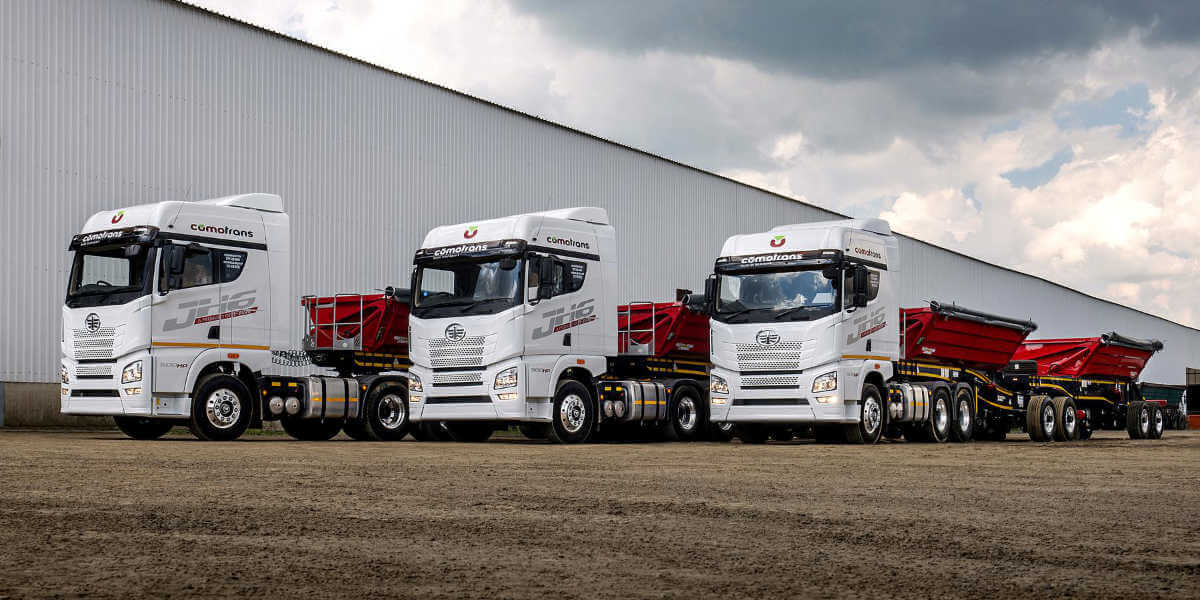Getting the most out of your tipper
Tippers are one of the true workhorses of the commercial vehicle industry, carrying heavy loads in conditions that are less than ideal. Every load represents money, making a reliable vehicle critical to the running of a profitable operation.
Article by: FAW Trucks
“While FAW’s range of Tippers are designed especially for the conditions in which they are required to operate, the way vehicles are used and looked after can make a big difference. If you treat your vehicles well, they will reward you with many trouble-free kilometres, a lower cost of ownership and less downtime,” says Yongjun Li, CEO of FAW Trucks South Africa.
The following simple, yet often overlooked advice could go a long way in ensuring that every load is delivered on time.
Avoid overloading.
Overloading is one of the quickest ways to shorten the life of your vehicle and is best avoided at all costs. The maximum load weight is carefully calculated, taking into consideration, axles, suspension and Tipper construction and it is best adhered to if you hope to get many reliable kilometres from your truck as well as remain within the law. Overloading will also have a detrimental effect on running costs as it is sure to result in increased fuel consumption and tyre wear. It is very important to ensure that you have the right vehicle for the job. FAW’s range of vehicles cater for a wide variety of load-carrying ability, so rather than overworking a smaller, less capable vehicle invest in the right vehicle for your application, it will be beneficial in the long run.
Keep it clean.
Commercial vehicles in the Tipper configuration often operate in less-than-ideal conditions. Cleaning vehicles on a daily or weekly basis is important to ensure their longevity. Moving parts like axles, brakes and Tipper struts should be washed clean of dust and mud, if not it could have a serious effect on these sensitive yet vital components. The cabin is the driver’s office and should be kept clean just like a normal office is, all loose items should be removed on a daily basis, touch surfaces wiped down and seats and flooring vacuumed. The accumulation of dirt will accelerate wear and tear and a dirty truck is not conducive to a good corporate image. The interior of FAW vehicles is constructed with hard-wearing, premium materials, that ensure a comfortable working environment but which are also easy to keep clean
Use telematics.
Telematics is vital to running an efficient operation whether your fleet consists of two or 200 trucks. These advanced systems are able to give fleet managers real-time updates on a variety of factors including location and speed. They are a great way to monitor and improve driving behavior and productivity. Telematics is an excellent tool for managing loads as it can assist by preventing overloading, ensuring vehicles are kept in pre determined zones by means of geo fencing and even prevent the load from being tipped in unauthorized locations. In that way it ensures safety of vehicles, driver and the load.
Stick to the maintenance schedule.
For vehicles like Tippers that operate in extreme conditions such as high temperature or dusty environments regular maintenance is key. FAW has carefully calculated the recommended service intervals required to ensure the longevity of your purchase and adhering to these is critical. In addition, vehicles that continuously operate in extremely dusty conditions might require more regular maintenance of items like air filters. Telematics systems are able to help fleet managers stay on top of maintenance and servicing by monitoring hours used and kilometres driven, allowing for the planning of periodic maintenance in a manner that minimises the impact on productivity.







